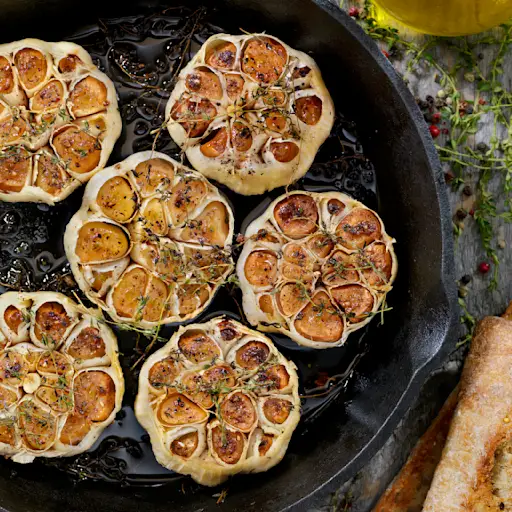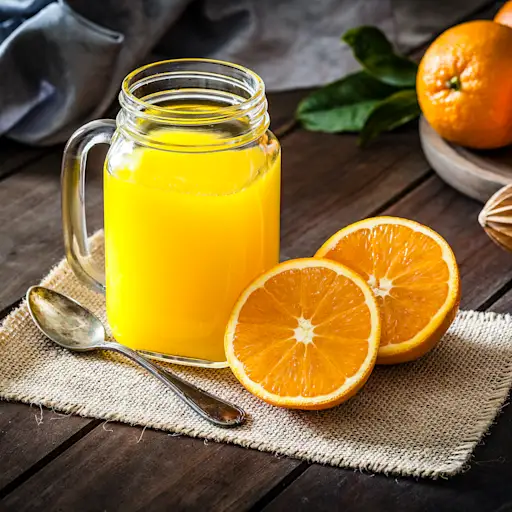Can Improving Gut Health Help Your MS?

When you haverelapsing-remitting multiple sclerosis (RRMS), treatment is often a combination of approaches, including medications and physical therapy. Diet makes a big difference, too: In fact, a scientific review published inCell Transplantationfound that your gut microbiota—the naturally occurring bacteria that hangs out in your intestines—may play a role in the development of MS, and that people with RRMS tend to have an imbalance of bad-to-good microbial populations. The good news: There are steps you can take to help improve gut health and possibly shift that balance.

Focus on Vegetables
When looking at ways to boost the beneficial bacteria and lower the detrimental kind, the first step is often adding high-quality fiber to your diet. This is what supports your gut health most and your best source is vegetables. “Fiber is the workhorse for a healthy microbiome, that’s what makes your good gut bacteria flourish,” says Seattle-based dietitian Mary Purdy, who is the author ofThe Microbiome Reset Diet. “Vegetables are the ultimate delivery system for that, because they’re also packed with vitamins and minerals.”

Eat Fermented Foods
除了囤积fresh and cooked vegetables, make sure at least some of them are fermented as well, Purdy says. Think sauerkraut, kimchi, curtido, yogurt, kefir, kombucha, miso, and tempeh. (Note: You want fermented but not pasteurized—check the label.) These foods have high levels of probiotics—microorganisms associated with replenishing gut flora. Research inCellsuggests options like these not only boost microbiome diversity, but also lower inflammation and improve immunity—a potential key to managingmultiple sclerosis, which is an inflammatory immune condition.

Include Prebiotics in Your Diet
Although probiotics are important, so are prebiotics, Purdy says. These are plant fibers that aren’t digested by the body, and instead travel through to your lower digestive tract, where they form a tasty buffet for your healthy bacteria. “Think of prebiotics as what your good bacteria love to eat,” she notes. “When they get enough of these, it makes them healthier and better at breaking down foods.” Top choices for prebiotics include garlic, leafy greens, leeks, asparagus, bananas, onions, oats, barley, and apples.

Foods to Avoid With MS
Just as prebiotics feed good bacteria, added sugars and heavily processed foods feed the bad actors in your gut, according to Sarah Berry, Ph.D., in the department of nutrition sciences at King’s College London in the United Kingdom. Choices like sweetened beverages, white bread, highly refined grains, and even fruit juice increase the bad bacteria in the gut. “Over time, and especially if these choices are pushing healthier foods out of the diet, you’ll have an imbalance that will raise inflammation and increase your risk of other chronic diseases,” Berry says.

Get Regular Exercise
Although nutrition plays a large role in gut health, supporting and bolstering your beneficial bacteria involves other strategies as well. Exercise is one: People living with MS who had five sweat sessions per week for six months experienced beneficial changes in their gut microbiota compared to those who didn’t exercise, according to a study published inComplementary Therapies in Clinical Practice. That might sound like a daunting amount of exercise, but even short sessions can add up, says Brittany Ferri, Ph.D., an occupational therapist in Rochester, NY.

Focus on Easy Movement
To get the most out of exercise, it’s helpful to begin with gentle movement like yoga or Tai Chi, Ferri suggests. Research has found that Tai Chi may help MS on two fronts. First, the ancient practice has been found to improve balance and mobility as well as better leg strength and coordination, and lessen fatigue. And in terms of gut health, a scientific review published in theJournal of Integrative Medicinefound Tai Chi may lower inflammation in the gut, which can help your beneficial bacteria thrive.

Lower Stress
Even if you’re in remission, it’s common for your MS to be the cause of some stress. The challenge is that stress can worsen symptoms, as well as increase risk of flares or relapses. Stress is tough on your gut health, too, and a study published inCurrent Opinion in Behavioral Sciencesfound it can reshape gut bacteria composition and increase inflammation. Focusing on stress reduction strategies such asmind-body therapiescan be useful, says Ferri. This is another way Tai Chi can help, but you can also try deep breathing, mindfulness techniques, and guided imagery.

Get Better Sleep
As you continue to strengthen the good bacteria in your microbiome, you may experience deeper sleep as a result since the gut plays a role in regulating your circadian rhythm. A study published inPLoS Onenotes that this connection brings other advantages, like better immune system function. Considering that sleep problems are common in people with MS and can make symptoms worse, strategies to improve sleep quality are crucial. In a nutshell, good sleep habits can benefit both your RRMS and your gut microbiome.

Focus on the Big Picture
Although the changes outlined here can support your gut in a way that may ease RRMS symptoms, focusing on gut health will do much more for your overall health. “Your gut is central for every system in your body, including better immunity, improved cardiovascular and cognitive function, even better lung health and lower risk of depression,” Purdy says. Plus, she adds, eating well, exercising, and improving sleep will be a strong complement to your therapeutic mix.
Gut Microbiota and MS:Cell Transportation. (2019.) “The Gut Microbiota in Multiple Sclerosis: An Overview of Clinical Trials.”https://pubmed.ncbi.nlm.nih.gov/31512505/
Fermented Foods:Cell. (2021.) “Gut-Microbiota-Targeted Diets Modulate Human Immune Status.”https://www.cell.com/cell/fulltext/S0092-8674(21)00754-6
Exercise and Gut Flora:Complementary Therapies in Clinical Practice. (2021.) “Home-Based Exercise Training Influences Gut Bacterial Levels in Multiple Sclerosis.”https://pubmed.ncbi.nlm.nih.gov/34348201/
Tai Chi Physical Benefits:PLoS One. (2017.) “Tai Chi for Health Benefits in Patients With Multiple Sclerosis: A Systematic Review.”https://www.ncbi.nlm.nih.gov/pmc/articles/PMC5300172/
Tai Chi on Gut Bacteria:Journal of Integrative Medicine. (2017.) “Exercise and Gut Microbiota: Clinical Implications for the Feasibility of Tai Chi.”https://pubmed.ncbi.nlm.nih.gov/28659231/
Stress on MS Symptoms:Mayo Clinic. (2017.) “Stress Management in MS.”https://www.mayoclinic.org/diseases-conditions/multiple-sclerosis/expert-answers/stress-management-for-ms/faq-20112503
Stress on Gut Makeup:Current Opinion in Behavioral Sciences. (2019.) “Stress, Depression, Diet, and the Gut Microbiota: Human–Bacteria Interactions at the Core of Psychoneuroimmunology and Nutrition.”https://www.ncbi.nlm.nih.gov/pmc/articles/PMC7213601/
Gut Health on Sleep:Frontiers in Psychiatry. (2018.) “The Role of Microbiome in Insomnia, Circadian Disturbance and Depression.”https://www.frontiersin.org/articles/10.3389/fpsyt.2018.00669/full
Sleep Problems in MS:National Multiple Sclerosis Society. (n.d.) “Sleep.”https://www.nationalmssociety.org/Living-Well-With-MS/Diet-Exercise-Healthy-Behaviors/Sleep
Elizabeth Millard is a freelance journalist specializing in health, wellness, fitness, and nutrition. Her articles have appeared in SELF, Men’s Health, CNN, MyFitnessPal, and WebMD, and she has worked on patient education materials for Mayo Clinic and UnitedHealth Group. She’s also a registered yoga teacher and organic farmer.

